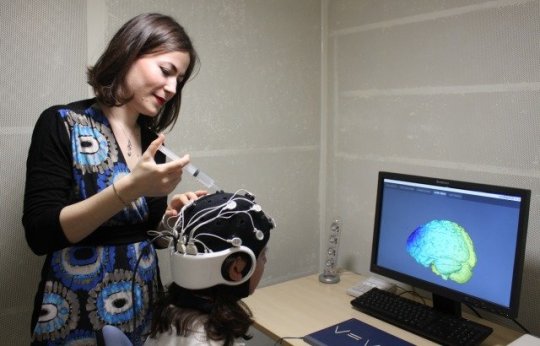The article “People are zapping their brains at home to improve focus and clear brain fog. But is it safe?” discusses the growing trend of at-home brain stimulation using devices like transcranial direct current stimulation (tDCS) to improve mental performance and alleviate symptoms like brain fog. The practice involves sending low-level electrical currents to specific parts of the brain through electrodes placed on the head.
While brain stimulation has proven medical uses for conditions like depression and Parkinson’s disease, at-home use remains controversial due to concerns about safety and the lack of scientific understanding regarding its long-term effects. The devices are available online and some are marketed with FDA clearance, but some scientists caution against using them without proper medical supervision.
The science behind brain stimulation and its effects on memory and cognitive abilities is still in the early stages. Some studies have shown promising results, indicating that brain stimulation may boost memory, but more research is needed to confirm its benefits and potential risks. Known side effects of brain stimulation, such as tDCS, may include mild skin irritation and headaches, which generally subside once the stimulation is stopped. Experts suggest that brain stimulation could have varying effects on cognitive abilities and may not be suitable for everyone.
The online community surrounding tDCS is rapidly growing, with enthusiasts sharing their experiences and seeking cognitive enhancement and relief from various health issues, including long COVID symptoms.
Some proponents argue that at-home brain stimulation devices should be treated similarly to readily available substances like coffee or alcohol. In this perspective, individuals should have the autonomy to decide whether to use these devices to enhance their cognitive abilities or address specific health concerns, just as they can freely choose to consume caffeine or alcoholic beverages without a doctor’s prescription.
In conclusion, at-home brain stimulation using devices like tDCS is gaining popularity, but its safety and effectiveness are still not fully understood. As with any emerging technology, caution is advised, and further research is necessary to determine its true potential in enhancing cognitive abilities and treating certain health conditions.




